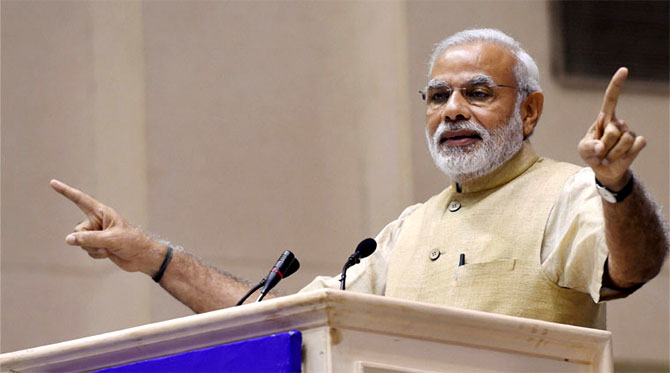The Modi government has taken many steps to curb black money transactions and shady operations of shell companies since it came to power. There have been positive results as the tax net of the country widened substantially in the last four years. The last and final blow against black money, however, was yet to come and the government is deploying this ‘Brahmanstra’ this year. The most challenging part of any investigation in a black money case is establishing a trail of transactions. The government and Reserve Bank of India (RBI) have begun discussions about making a database of all electronic payment transactions. This will help in establishing a money trail to probe money laundering cases and operations of shell companies. While the government’s main focus will be on probing the corporate transactions, it will have data of individual transactions as well.
Shell companies are loosely defined as non-trading companies which are used for various financial transactions and kept dormant for future use in any other capacity, and mostly exist only on paper. The shell companies are the major problem for the government as they are the easiest tool to evade payment of taxes. The government had earlier taken a series of steps to crack down on shell companies. In the last financial year ’18, the Registrar of Companies (RoC) removed the names of 2.26 lakh companies from its register and disqualified 3.09 lakh directors. The task force has identified another 2.25 lakh shell firms to de-register this financial year. Cash was deposited in the bank accounts of 1.68 lakh firms post demonetization on 8 November 2016, according to data available with the Ministry. The Modi government has appointed a task force headed by Finance Secretary Hasmukh Adhia and Corporate Affairs Secretary Injeti Srinivas in February 2017 to take on shell companies. The task force is coming up with a new definition of shell companies as there was a lot of ambiguity over which companies can be termed as a shell company.
The database of electronic transactions will be made available to agencies on specific request. The proposal is to let RBI put in place a platform where all non-cash transactions can be recorded and shared on a need-to-know basis, and the data would not be available on tap but would be shared based on a specific request. At present, the Modi government is probing deposits of almost 1 billion dollars in 20,000 of such companies, indicating that the shadow economy of India runs deep, accounting for almost 25 percent of GDP.
The government loses billions of dollars due to tax evasion through shell companies. Relatives of many high profile leaders like the cousin of former Finance Minister P Chidambaram and his son Karti Chidambaram were found to be involved in running shell companies. Government is expected to earn more money in corporate and income taxes by cracking down on shell companies. The existence of shell companies also makes a country a poor destination for foreign investment, because investors are not sure whether they are investing in a genuine company or not. The Modi government is trying to establish a rule-based system where everyone has a fair chance to compete in the free market. Earlier the cronies who had proximity with the government did not pay the fair share of taxation because they know the government is weak and they could save themselves from enforcement agencies due to their proximity with some politicians. Due to the proactive stance on black money, the number of direct taxpayers in the country has gone above 10 million from the previous 6.2 million.




















